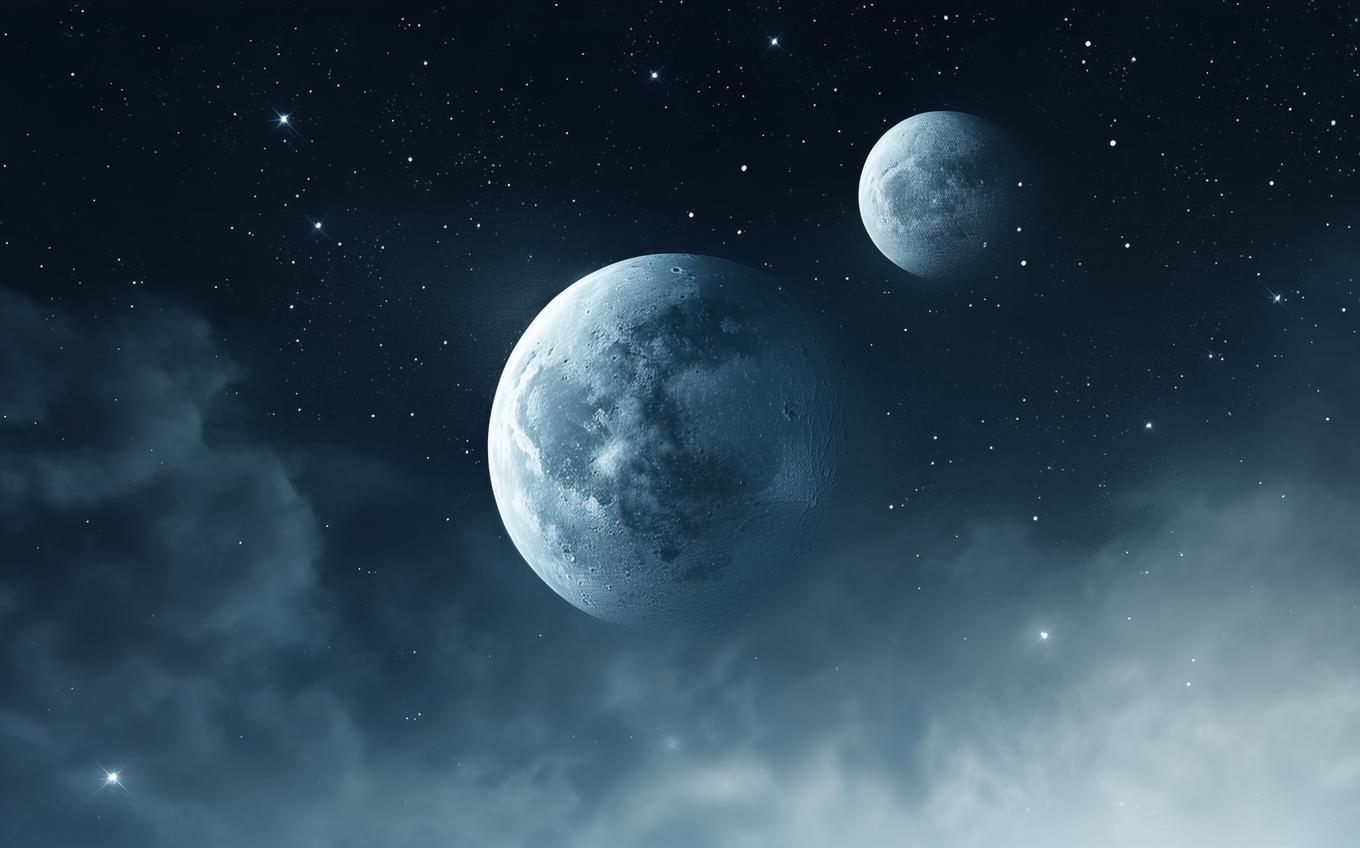Understanding "月" - Chinese Word Explanation
1. Basic Information
- Word: 月
- Pinyin: yuè
- Literal Meaning: moon; month
- Primary Meaning: The word "月" primarily means "moon" (the celestial body) or "month" (a unit of time).
2. In-depth Explanation
- Context and Usage:
- When referring to the moon, "月" is used in contexts like astronomy, poetry, or describing nighttime scenery.
- When meaning month, it appears in dates, calendars, or time-related expressions (e.g., "三个月" means "three months").
-
It is also a common component in Chinese characters related to time or brightness (e.g., "明" (bright) combines "日" (sun) and "月" (moon)).
-
Character Breakdown:
- "月" is a single-character word, but its shape resembles a crescent moon, reflecting its pictographic origin. Historically, it symbolized the lunar cycle, which later extended to represent "month" due to the moon's monthly phases.
3. Example Sentences
-
Chinese: 今晚的月亮很圆。
Pinyin: Jīn wǎn de yuèliang hěn yuán.
English: Tonight's moon is very round. -
Chinese: 下个月我要去旅行。
Pinyin: Xià gè yuè wǒ yào qù lǚxíng.
English: Next month, I will go traveling. -
Chinese: 中秋节是赏月的日子。
Pinyin: Zhōngqiū jié shì shǎng yuè de rìzi.
English: The Mid-Autumn Festival is a day for admiring the moon.
Cultural Notes
- The moon holds deep cultural significance in China, symbolizing reunion and nostalgia, especially during the Mid-Autumn Festival (中秋节), where families gather to eat mooncakes and gaze at the full moon.
- In traditional Chinese poetry (e.g., works by Li Bai), the moon often represents beauty, solitude, or longing for home.
- The lunar calendar (农历, nónglì), based on moon cycles, is still used for festivals like Chinese New Year.
Conclusion
"月" (yuè) is a versatile word meaning both "moon" and "month," deeply rooted in Chinese language and culture. Remember its dual meanings and its poetic and practical uses!




Comments (0)
No comments yet. Be the first to comment!